
Gal. The vegan croissant café also fights waste
A vegan, specialty coffee shop that fights food waste every day, has opened in Anjos, Lisbon. Welcome to Gal. The team at Too Good to
We didn't find any happenings mapped to your criteria.
Try the traditional search to find articles not yet mapped with RUA.
We didn't find any happenings mapped to your criteria.
Try the traditional search to find articles not yet mapped with RUA.
We didn't find any happenings mapped to your criteria.
Try the traditional search to find articles not yet mapped with RUA.
We didn't find any happenings mapped to your criteria.
Try the traditional search to find articles not yet mapped with RUA.
They compost and recycle everything that can be recycled. They produce more and more in the restaurant to avoid packaging and they dedicate themselves to a vegetable garden where most of the ingredients come from. Welcome to this oasis of sustainability called Casavostra.
The Italian restaurant Casavostra was one of the first to have a vegetable garden in the Algarve, at a time when only Michelin-starred restaurants had this privilege. Almond blossom and grapefruit from the garden are served in cocktails, guavas and loquats make up the pannacotta and the starter olives grow on the olive trees outside. One of the stars of the house is the arugula cultivata, which grows in the garden all year round and is very different from the wild rocket we buy in the supermarket. Lettuce, fresh herbs, eggplants, zucchinis, spinach, broccoli, beet and seasonal tomatoes, cucumbers, oranges, lemons, figs, avocados, peppers and limes are some of the ingredients that come from the earth to take pride of place at the table.
“The vegetable garden allows us to do many things: as well as having produce that has a very short journey to the restaurant, its production is natural and free of chemicals or pesticides. It’s much more sustainable and allows us some circularity,” Matilde Louro, a partner in the restaurant, explains to Peggada.
Leftovers from the restaurant’s kitchen and coffee grounds are composted and used as fertilizer. To strengthen the compost, they add tree prunings, after they have been shredded instead of burned. The salads and garnishes are donated to the employees for their chickens, and the surplus food is donated to Refood on a daily basis. “There is no perfect balance, there are times of high production and, therefore, there are surpluses.”
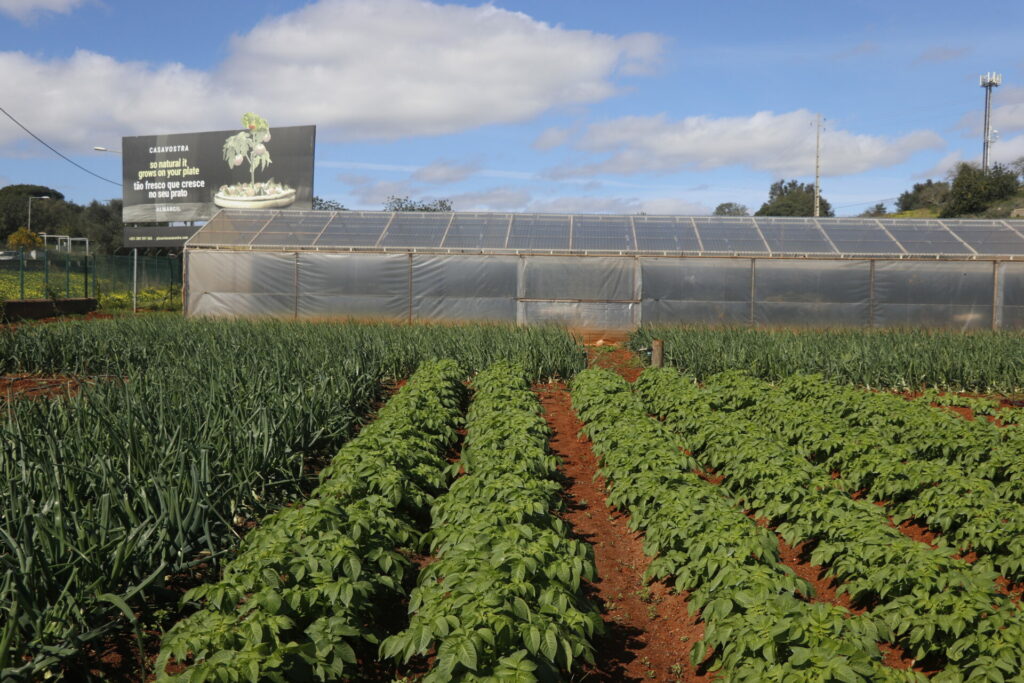
Open since 2003, Casavostra reopened under new management in 2011. The pizzaiolo stayed and the pizzas remained practically untouched.
“Customers who have been visiting us for years are very sensitive to changes in the menu, so we’ve been making gradual transitions,” explains Matilde. “Nowadays we have a different dynamic, adapted to the Algarve market and to those who visit us on a daily basis as if we were a canteen. We wanted to put more emphasis on salads and create a more diversified menu, in addition to pasta and pizzas. We gradually managed to find local producers who offer the same quality compared to products of Italian origin, as is the case with goat cheese, bacon, quinoa and some of the meats on the menu. It’s not always easy to substitute ingredients, but we keep experimenting and testing.”
Matilde grew up in the Algarve, moved to Lisbon and, in 2012, returned to dedicate herself to this project with her parents and husband. They took advantage of the family warehouse and interior design store and linked the two businesses.
They now make homely gluten-free pizzas, grissinis, the house soda or cold tea, the kind of changes that allows them to reduce their consumption of disposable packaging and offer a more responsible consumption solution. The wines are sourced from local family farms, so you they don’t have to be driven all the way to the restaurant.
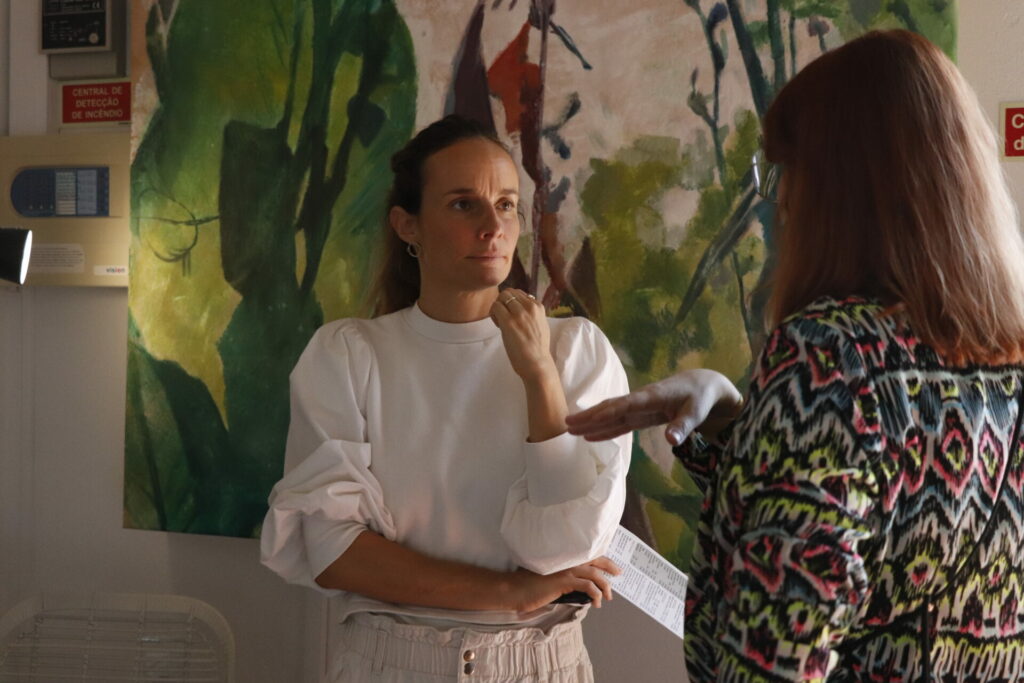
The challenge of recycling and energy efficiency
“Reusing and respecting the lifespan of goods has always been a family concern. The bigger changes, such as solar panels or biodegradable packaging, have come along,” explains Matilde. “First and foremost, we think about the impact of what we consume and produce. The spirit is to use everything to the maximum and focus on the useful life of our items. That’s responsible consumption.” Terrace chairs, for example, which get worn out by the sun, are given a new lease of life with the covers sewn in the store.
At the beginning of the year, solar panels were installed that reduce electricity consumption by at least 30%, water-saving nozzles on bathroom sinks that save up to 96% of water and the transition of the menus from physical to digital form is on the way, as it is a reduction in the amount of marketing materials, such as flyers. The reduction in using disposable objects extends to napkins, which have always been made of cloth, takeaway packaging and biodegradable straws. These changes were implemented even before the restrictions on the consumption of non-reusable plastic.
The restaurant also recycles glass, plastics and paper, vegetable oil, light bulbs, cork, toners, ink cartridges, batteries, small appliances and staff uniforms.
“The biggest challenge is recycling, because of the time investment,” explains Matilde. “I’m very committed and I personally take the waste to the Faro shopping center. I’ve made several contacts to try and improve this collection process, because at the moment it’s still very manual.”
Matilde explains that there is still a lot of misinformation about the correct recycling process. “It’s something we have to work on with our team on a daily basis to ensure effective implementation.” Every year, the restaurant takes its entire team to Algar, the company responsible for waste treatment in the Algarve, to clarify doubts and provide training. “This investment allows us to reduce contamination in the restaurant. Knowing that paper napkins (even if clean) and kitchen paper are not recyclable. Pizza boxes must be clean before they can be recycled. And this is a practice that we also repeat with new employees.”
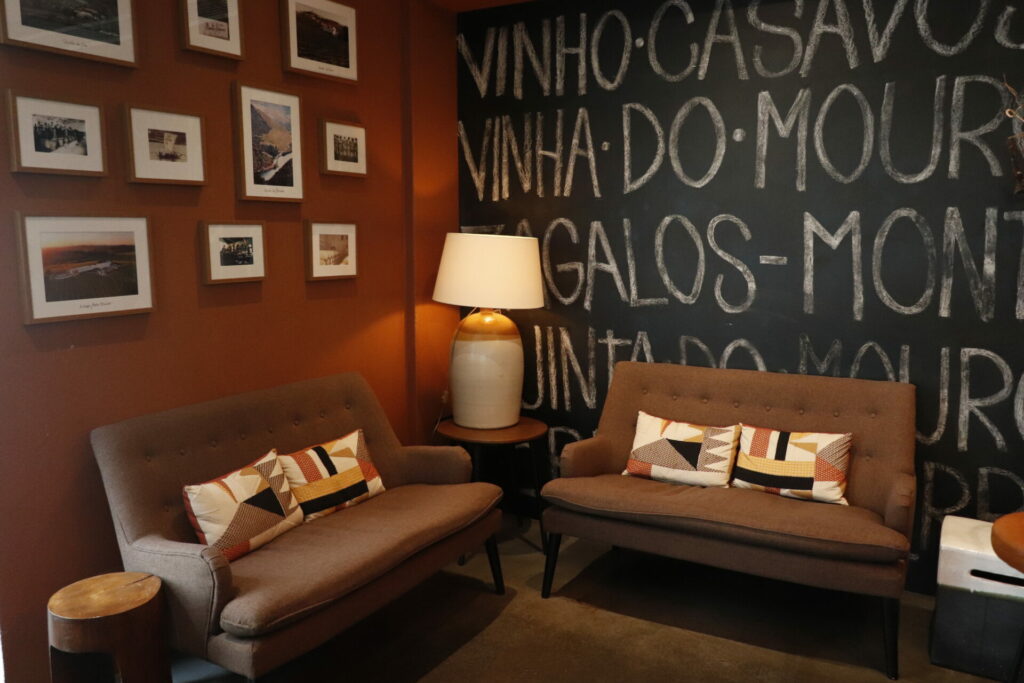
There’s more to do on the road to sustainability
Aware of the trends in Lisbon and of local support programs, Matilde stresses that her goal is to improve the restaurant and do more. The next ambitions are to increase composting capacity, create a reusable packaging system, use coffee grounds to grow mushrooms, implement a cooling chamber to optimize the kitchen’s water system for washing dishes, implement a carbon offset program and continue to look for the most local ingredients possible, even for products of Italian origin. “We are already in contact with an Italian producer who produces in Portugal.”
Matilde concludes, “It’s not always easy to adopt practices that are more sustainable and that give us a financial return in the restaurant, but this is a question of ethics and values, which we really don’t want to lose.”
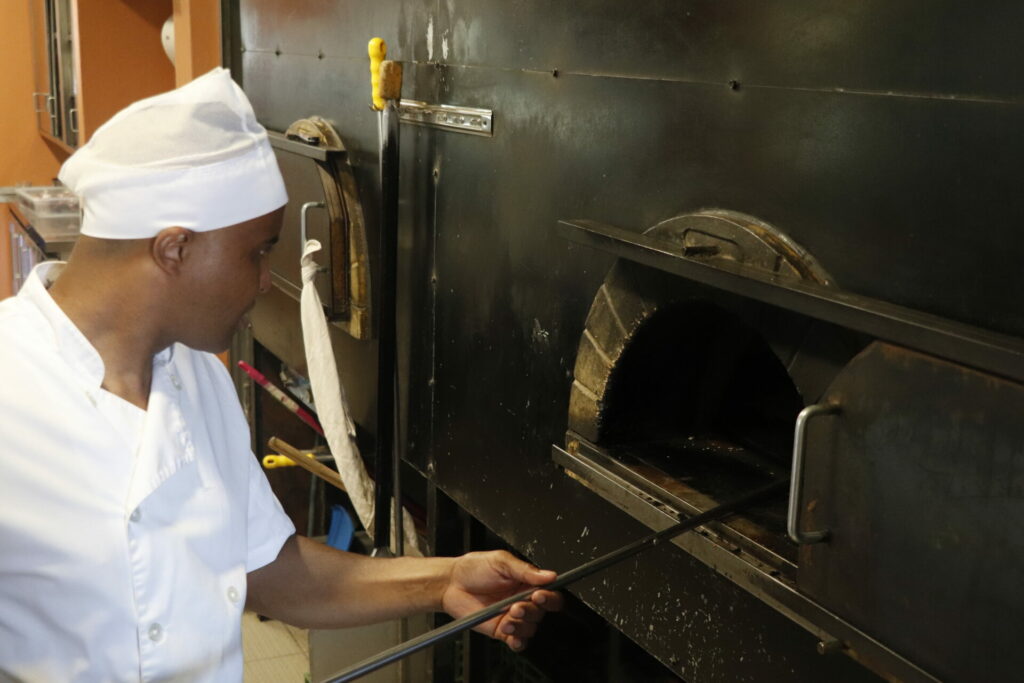



A vegan, specialty coffee shop that fights food waste every day, has opened in Anjos, Lisbon. Welcome to Gal. The team at Too Good to

Restaurants, bulk stores, baskets and second-hand clothes stores. There’s a bit of everything in Caldas da Rainha, an example when it comes to sustainable projects.

The Pequeno Café Bistrô (Little Bistro Café) opened four years ago in Mercado de Arroios, in a small space – well suited to the name
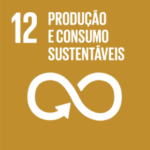
This article promotes an action that encourages the reduction of waste generation through prevention, reduction, recycling, and reuse.
➡️ To discover more businesses that are aligned with Sustainable Development Goal 12 “Sustainable Production and Consumption” click here.
➡️ For news, tips and interviews about this topic, click here
➡️ Want to know more about the 17 United Nations Sustainable Development Goals? Click here
Esta publicação também está disponível em:
![]() Português (Portuguese (Portugal))
Português (Portuguese (Portugal))

